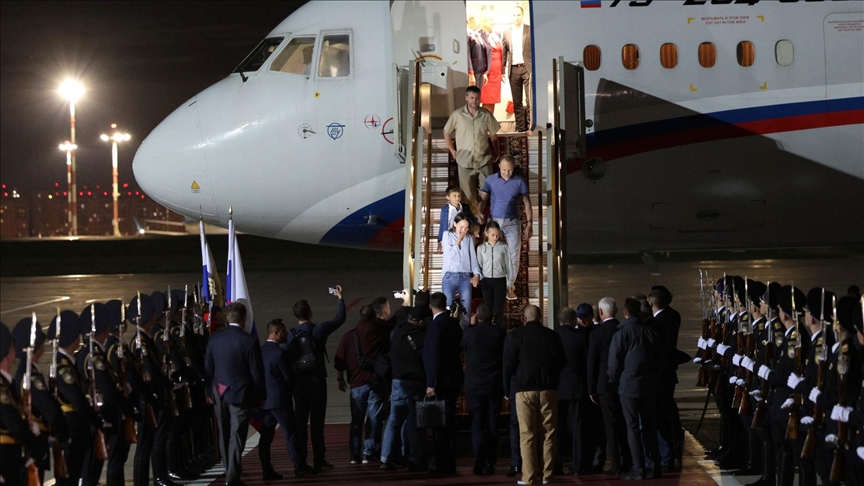Kremlin says Russian, US intelligence cooperation made prisoner exchange possible
Peskov says such exchange demands lots of efforts, coordination

MOSCOW
Kremlin spokesman Dmitry Peskov said Thursday's prisoner exchange between Russia and US, coordinated by Türkiye, was a result of collaboration of Federal Security Service (FSB) and the Central Intelligence Agency (CIA).
"This work, carried out through the FSB and CIA, required very challenging negotiations and the involvement of numerous countries to establish intricate agreements," he told a press conference in Moscow.
He credited President Vladimir Putin for adopting a firm stance, insisting on a prisoner exchange instead of extraditing Americans as a "gesture of goodwill." "This tough stance has finally yielded results, and our people have returned to their homeland."
He also acknowledged the role played by Belarus, particularly President Alexander Lukashenko, in facilitating the exchange. "We highly value the cooperation with the Belarusian KGB, the Foreign Ministry, and the personal assistance provided by President Lukashenko," he said.
The spokesman highlighted the importance of honoring the returning Russians, describing it as "a tribute to those who serve their country."
"It is crucial to recognize the efforts of those who, after enduring difficult trials, were able to return home thanks to the hard work of many," he added.
Asked about the warm reception for Vadim Krasikov, a former member of the special Alpha unit of the FSB, Peskov said Krasikov was member of the presidential security staff.
He declined to comment on future potential exchanges, including negotiations concerning journalist Ivan Safronov and sociologist Boris Kagarlitsky, both serving sentences for working for foreign intelligence.
Regarding the return of Anna and Artyom Dultsev, who had served their terms in Slovenia, Peskov said they risked losing parental rights had they remained there. "They were deprived of the opportunity to see their children regularly, and there was a real threat of losing their parental rights," he explained.
As many as 26 people, including eight Russians detained in various parts of NATO countries, were swapped in the large-scale prisoner exchange in Ankara. Paul Whelan, a former US marine, and Wall Street Journal reporter Evan Gershkovich, who was convicted of spying, also went free.
Peskov said efforts to secure the release of other Russians would continue.
Anadolu Agency website contains only a portion of the news stories offered to subscribers in the AA News Broadcasting System (HAS), and in summarized form. Please contact us for subscription options.







